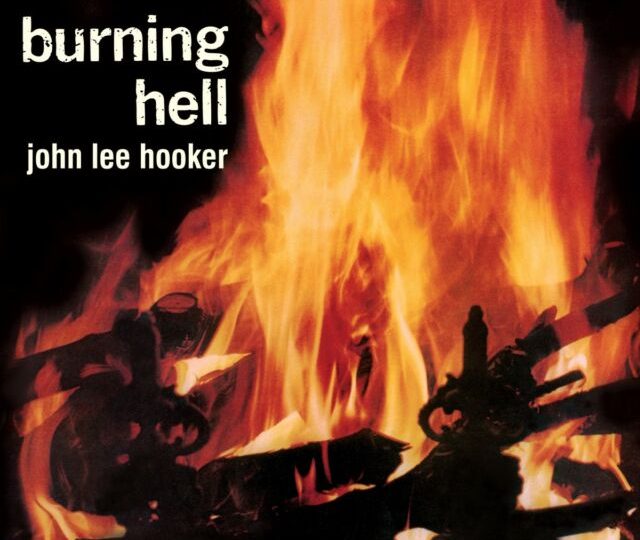
Martin Gore on John Lee Hooker – Burning Hell (1964)
There is a rule of thumb for music that I like: the simpler it is, the better I like it. John Lee Hooker is the measure of all things in this regard. I admire him for everything he has achieved within blues- a pioneer and visionary of the kind who is born maybe once every 50 years. But for me personally, that part in his inextricable legacy showing the stripped songwriter has the biggest importance. Only John Lee Hooker and his guitar, like on Burning Hell. The album was released mid-sixties, but had been recorded end of the 50s.
One might think that it is a harsh contrast when I am talking about Hooker, an archaic blues singer with an acoustic guitar, while at the same time I spin Techno that cannot sound futuristic enough in my function as DJ . A contrast, yes, but not a conflict. And that is what I try to convey with my own music: it is the interplay of cold machine sounds and warm analogue music that I have in mind.
We experimented with this on a larger scale for the first time on Violator  (1990), as a direct consequence of my enthusiasm for John Lee Hooker. Since then, every Depeche Mode record follows this route, sometimes more, sometimes less noticeably. If you would deprive our songs of all sound and production means, in most cases you would face a blues track, or at least a song that follows a classic blues scheme. No hocus-pocus, no progressive blues- just the pure teaching. This is how the soul gets through. Simplicity is the key.
(1990), as a direct consequence of my enthusiasm for John Lee Hooker. Since then, every Depeche Mode record follows this route, sometimes more, sometimes less noticeably. If you would deprive our songs of all sound and production means, in most cases you would face a blues track, or at least a song that follows a classic blues scheme. No hocus-pocus, no progressive blues- just the pure teaching. This is how the soul gets through. Simplicity is the key.
by Martin Gore

[…] of these new forms of ways to make loud noise. Depeche Mode was charging ahead at the forefront. Martin Gore is a gifted writer and gifted composer. He said let’s not make always a happy song, let’s talk […]